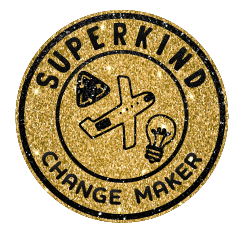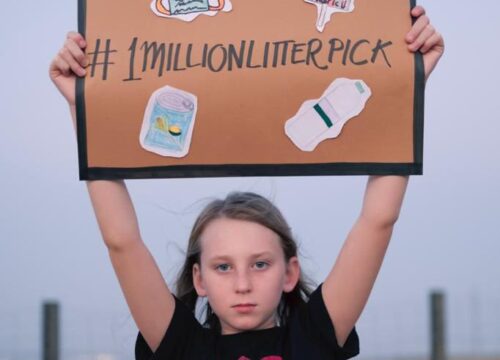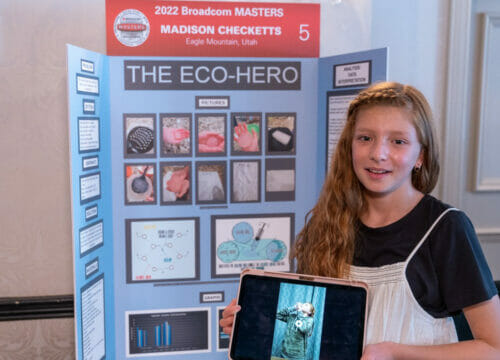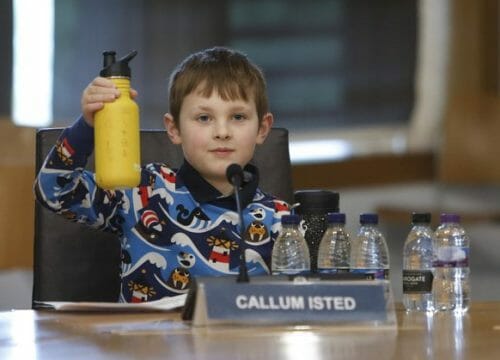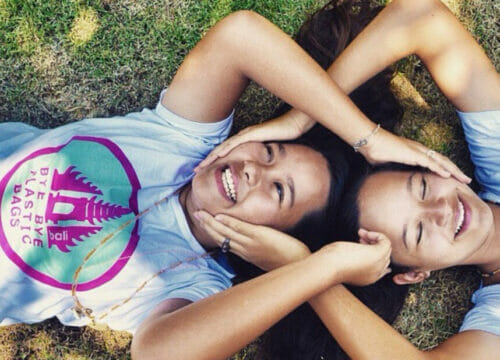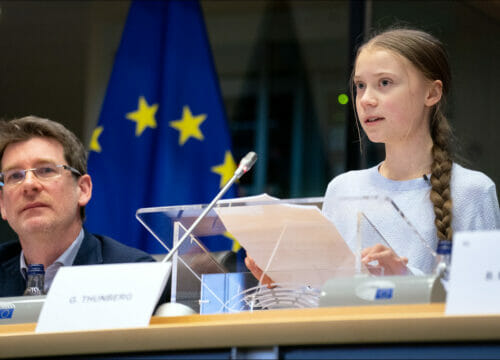Raising money and awareness for octopus protection since she was 10 years old.
Changing your behaviour
Changing your behaviour
Changing your behaviour just means doing certain things in your daily life in different ways.
If you want to make a change in the world, changing your behaviour is often a good first step. To change your behaviour, you don’t need to rely on anyone but yourself and it’s completely free to do! A little change can go such a long way!
Steps to changing your behaviour

1. Think about what it is you want to achieve.
What is it that has inspired you to change your behaviour? (For example, maybe you learnt that beef has a huge ‘water footprint,’ which is water used in its production and you want to reduce the water footprint of your diet).

2. Think about how you could reach your goal.
How can you change the way you do things? (For example, you could change your diet).

3. Set a goal.
Make sure your goal is SMART.
- Specific – Be clear with what it is you want to achieve. For example, ‘eating beef only once a week’ is much better than ‘eating less meat’ – it details how much you’ll eat and to what type of meat your goal relates.
- Measurable – Make sure you can see if you’ve met your goal. For example, by saying you’ll only eat beef once a week, you can easily measure whether or not you’ve met your goal.
- Achievable – Make sure your goal is something you can achieve. For example, eating beef only once a week is easier than cutting all meat from your diet.
- Relevant – Make sure your goal helps you do what you set out to achieve. For example, deciding to use showers instead of baths wouldn’t be much help in reducing the water footprint of the foods you eat.
- Time-bound – Decide on a time limit for reaching your goal or when you might review it to see if you can set the bar even higher. For example, this year you would eat beef only once a week. On 31st December, you could decide whether to eat even less beef.
It is always sensible to discuss your idea with friends and family as they might have feedback as to how to make your behaviour change even more effective.
 Always chat to an adult before making a big change to make sure that it won’t have any unintended effects – for example if you decide to stop eating red meat you will need to make sure that your diet still has enough iron in it or you might start to feel weak and tired.
Always chat to an adult before making a big change to make sure that it won’t have any unintended effects – for example if you decide to stop eating red meat you will need to make sure that your diet still has enough iron in it or you might start to feel weak and tired.

REFLECT
Changing your behaviour is not only a great way to make a difference but it’s also a great way to try new ways of doing things.
Don’t forget to have a think about what went well, what you might have learnt for the future, and the impact of your actions.
For example, what was the impact of the change you made? Did you enjoy the process? Did you find anything very tricky? If so, how did you keep going when it was tough?
Behaviour Change that Can Change the world
People from all around the world have changed their behaviour to work towards all sorts of different problems. For example, by switching to vegetarian or vegan diets, people are making small changes and having huge positive effects on the planet.
Animal products (such as meat and dairy) tend to have a much higher water and carbon footprint than vegetarian and vegan options. So going vegetarian or vegan uses up less water and produces less carbon. A beef burger produces 2.11kg of carbon dioxide and has 2,400 litres of ‘virtual water,’ or ‘hidden water’ that was used to raise the cattle. Whereas a vegan burger (made mostly of pea protein, rice protein and potato) produces 0.68kg of carbon dioxide and has only 4 litres of hidden water.
Estimates suggest that 375 million people in the world (about 1 in 20) are vegetarian and about 88 million people in the world (about 1 in 100) are vegan.
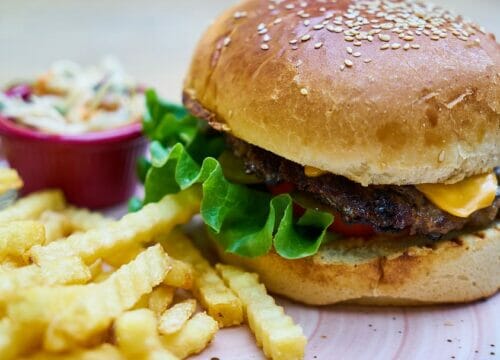
Change-Makers
Changing your behaviour can be a great first step to making and inspiring big changes. Check out the stories of these young change-makers who have changed their behaviour in a positive way.
Ali Waters Galán
Campaigning for people and businesses to stop using single-use plastics since they were 10 and 12 years old.
Amy and Ella Meek
Campaigning for people and businesses to stop using single-use plastics since they were 10 and 12 years old.
Callum Isted
Petitioning for schools to give children reusable water bottles since he was 7 years old.
Melati and Isabel…
Campaigning for the banning of plastic bags in Bali since they were 10 and 12 years old.


